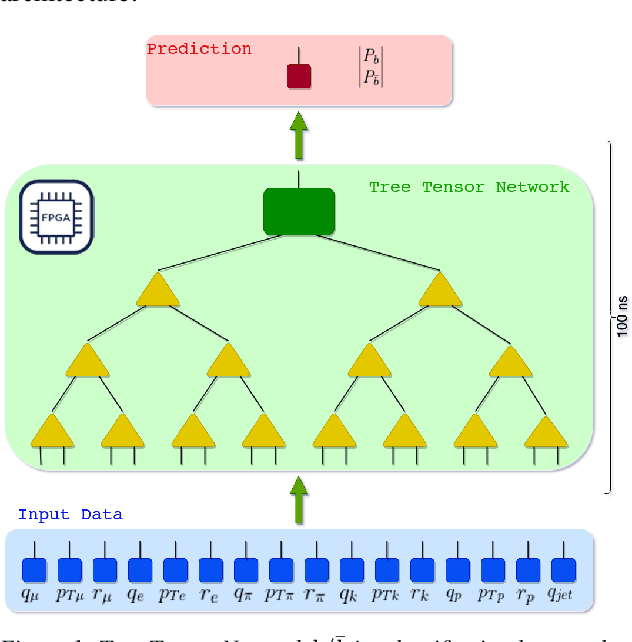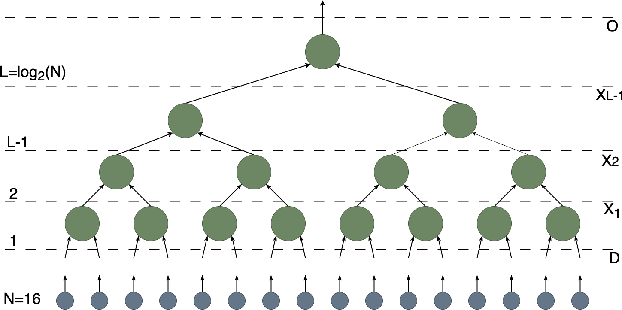Andrea Stanco
Ultra-low latency quantum-inspired machine learning predictors implemented on FPGA
Sep 25, 2024



Abstract:Tensor Networks (TNs) are a computational paradigm used for representing quantum many-body systems. Recent works have shown how TNs can also be applied to perform Machine Learning (ML) tasks, yielding comparable results to standard supervised learning techniques. In this work, we study the use of Tree Tensor Networks (TTNs) in high-frequency real-time applications by exploiting the low-latency hardware of the Field-Programmable Gate Array (FPGA) technology. We present different implementations of TTN classifiers, capable of performing inference on classical ML datasets as well as on complex physics data. A preparatory analysis of bond dimensions and weight quantization is realized in the training phase, together with entanglement entropy and correlation measurements, that help setting the choice of the TTN architecture. The generated TTNs are then deployed on a hardware accelerator; using an FPGA integrated into a server, the inference of the TTN is completely offloaded. Eventually, a classifier for High Energy Physics (HEP) applications is implemented and executed fully pipelined with sub-microsecond latency.
A time-to-digital converter with steady calibration through single-photon detection
Jun 03, 2024



Abstract:Time-to-Digital Converters (TDCs) are a crucial tool in a wide array of fields, in particular for quantum communication, where time taggers performance can severely affect the quality of the entire application. Nowadays, FPGA-based TDCs present a viable alternative to ASIC ones, once the nonlinear behaviour due to the intrinsic nature of the device is properly mitigated. To compensate said nonlinearities, a calibration procedure is required, usually based on an interpolation methods. Here we present the design and the demonstration of a TDC that is FPGA-based and showing a residual jitter of 27 ps, that is scalable for multichannel operation. The application in Quantum Key Distribution (QKD) is discussed with a unique calibration method based on the exploitation of single-photon detection that does not require to stop the data acquisition or to use any interpolation methods, thus increasing accuracy and removing data loss. The calibration was tested in a relevant environment, investigating the device behaviour between 5{\deg}C and 80{\deg}C. Moreover, our design is capable of continuously streaming up to 12 Mevents/s for up to ~1 week without the TDC overflowing.
 Add to Chrome
Add to Chrome Add to Firefox
Add to Firefox Add to Edge
Add to Edge